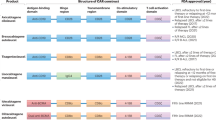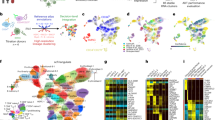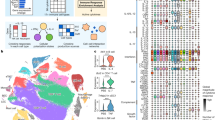Abstract
Emerging evidence suggests that psychosocial factors pre-transplant predict survival in cancer patients undergoing hematopoietic stem cell transplantation (HSCT). These studies, however, typically have small sample sizes, short-term follow ups or a limited panel of medical covariates. We extend this research in a large, well-characterized sample of transplant patients, asking whether patients’ perceived emotional support and psychological distress predict mortality over 2 years. Prior to transplant, 400 cancer patients (55.5% males; 82.8% White; Mage=50.0 years; 67.0% leukemia, 20.0% lymphoma) were interviewed by a social caseworker, who documented the patients’ perceived emotional support and psychological distress. Subsequently, patients received an allogeneic HSCT (51.0% matched-related donor, 42.0% matched-unrelated donor and 7.0% cord blood). HSCT outcomes were obtained from medical records. Controlling for demographic characteristics (age, sex, race/ethnicity and marital status) and medical confounders (disease type, conditioning regimen, remission status, cell dosage, donor and recipient CMV seropositivity, donor sex, comorbidities and disease risk), ratings of good emotional support pre-transplant predicted longer overall survival (hazard ratio (HR)=0.61, 95% confidence interval (CI), 0.42–0.91; P=0.013). Pre-transplant psychological distress was unrelated to survival, however (Ps>0.58). Emotional support was marginally associated with lower rates of treatment-related mortality (HR=0.58, CI, 0.32–1.05; P=0.073). These findings are consistent with the hypothesis that emotional support contributes to better outcomes following HSCT. Future studies should examine whether intervention efforts to optimize emotional resources can improve survival in cancer patients.
This is a preview of subscription content, access via your institution
Access options
Subscribe to this journal
Receive 12 print issues and online access
$259.00 per year
only $21.58 per issue
Buy this article
- Purchase on Springer Link
- Instant access to full article PDF
Prices may be subject to local taxes which are calculated during checkout


Similar content being viewed by others
References
Pasquini M, Wang Z, Horowitz MM, Gale RP . 2013 Report from the Center for International Blood and Marrow Transplant Research (CIBMTR): current uses and outcomes of hematopoietic cell transplants for blood and bone marrow disorders. Clin Transpl 2013; 2013: 187–197.
Bashir Q, Khan H, Orlowski RZ, Amjad A, Shah N, Parmar S et al. Predictors of prolonged survival after allogeneic hematopoietic stem cell transplantation for multiple myeloma. Am J Hematol 2012; 87: 272–276.
Prieto JM, Blanch J, Atala J, Carreras E, Rovira M, Cirera E et al. Psychiatric morbidity and impact on hospital length of stay among hematologic cancer patients receiving stem-cell transplantation. J Clin Oncol 2002; 20: 1907–1917.
Baker KS, Davies SM, Majhail NS, Hassebroek A, Klein JP, Ballen KK et al. Race and socioeconomic status influence outcomes of unrelated donor hematopoietic cell transplantation. Biol Blood Marrow Transplant 2009; 15: 1543–1554.
Costanzo ES, Juckett MB, Coe CL . Biobehavioral influences on recovery following hematopoietic stem cell transplantation. Brain Behav Immun 2013; 30: S68–S74.
Grulke N, Larbig W, Kächele H, Bailer H . Pre-transplant depression as risk factor for survival of patients undergoing allogeneic haematopoietic stem cell transplantation. Psychooncology 2008; 17: 480–487.
Hoodin F, Uberti JP, Lynch TJ, Steele P, Ratanatharathorn V . Do negative or positive emotions differentially impact mortality after adult stem cell transplant? Bone Marrow Transplant 2006; 38: 255–264.
Pillay B, Lee SJ, Katona L, Burney S, Avery S . Psychosocial factors predicting survival after allogenic stem cell transplant. Support Care Cancer 2014; 22: 2547–2255.
Pereira DB, Christian LM, Patidar S, Bishop MM, Dodd SM, Athanason R et al. Spiritual absence and 1-year mortality after hematopoietic stem cell transplant. Biol Blood Marrow Transplant 2010; 16: 1171–1179.
Foster LW, McLellan L, Rybicki L, Dabney J, Copelan E, Bolwell B . Validating the positive impace of in-hospital lay care-partner support on patient survival in allogenic BMT: a prospective study. Bone Marrow Transplant 2013; 48: 671–677.
Tschuschke V, Hertenstein B, Arnold R, Bunjes D, Denzinger R, Kaechele H . Associations between coping and survival time of adult leukemia patients receiving allogeneic bone marrow transplantation: results of a prospective study. J Psychosom Res 2001; 50: 277–285.
Lutgendorf SK, Andersen BL . Biobehavioral approaches to cancer progression and survival: mechanisms and interventions. Am Psychol 2015; 70: 186–197.
Chida Y, Hamer M, Wardle J, Steptoe A . Do stress-related psychosocial factors contribute to cancer incidence and survival? Nat Clin Pract Oncol 2008; 5: 466–475.
Lutgendorf SK, De Geest K, Bender D, Ahmed A, Goodheart MJ, Dahmoush L et al. Social influences on clinical outcomes of patients with ovarian cancer. J Clin Oncol 2012; 30: 2885–2890.
Knight JM, Lyness JM, Sahler OJ, Lieveld JL, Moynihan JA . Psychosocial factors and hematopoietic stem cell transplantation: potential biobehavioral pathways. Psychoneuroendocrinology 2013; 38: 2383–2393.
Author information
Authors and Affiliations
Corresponding author
Ethics declarations
Competing interests
The authors declare no conflict of interest.
Rights and permissions
About this article
Cite this article
Ehrlich, K., Miller, G., Scheide, T. et al. Pre-transplant emotional support is associated with longer survival after allogeneic hematopoietic stem cell transplantation. Bone Marrow Transplant 51, 1594–1598 (2016). https://doi.org/10.1038/bmt.2016.191
Received:
Revised:
Accepted:
Published:
Issue Date:
DOI: https://doi.org/10.1038/bmt.2016.191
This article is cited by
-
Loneliness, immunological recovery patterns, and health-related quality of life (HRQOL) outcomes in patients receiving hematopoietic stem cell transplantation
BMC Psychology (2024)
-
Survival protection of patients undergoing hematopoietic stem cell transplantation: grounded theory
Supportive Care in Cancer (2023)
-
Marital status and survival in laryngeal squamous cell carcinoma patients: a multinomial propensity scores matched study
European Archives of Oto-Rhino-Laryngology (2022)
-
A study of elite sport-inspired coaching for patients after allogeneic hematopoietic stem cell transplantation
Bone Marrow Transplantation (2021)
-
Psychosocial Assessment of Candidates for Transplant (PACT) as a tool for psychological and social evaluation of allogeneic hematopoietic cell transplantation recipients
Bone Marrow Transplantation (2019)



